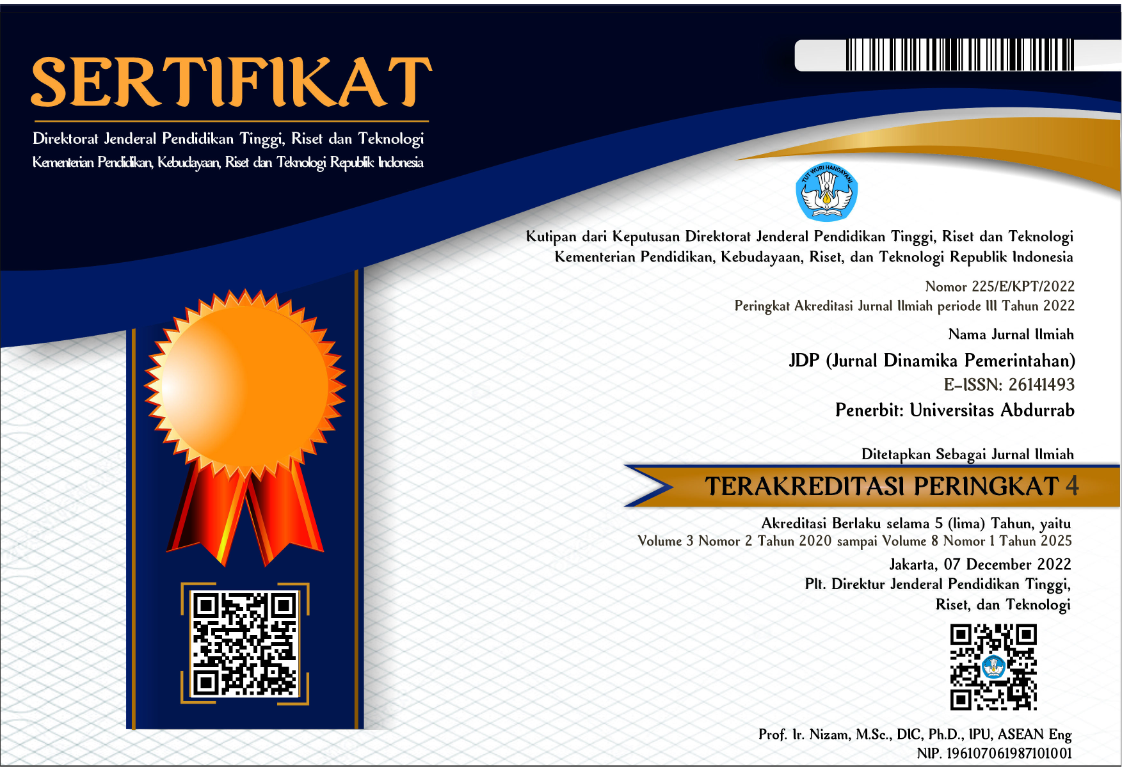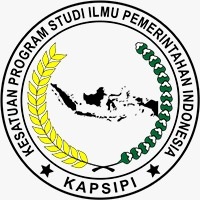STUDI PENDAHULUAN: KONSTRUKSI KEBIJAKAN PENGELOLAAN SAMPAH DI KOTA PEKANBARU 2012-2014
DOI:
https://doi.org/10.36341/jdp.v3i2.1279Keywords:
Design, Policy Control, Trash, UrbanAbstract
The problem of waste is homework for governments and communities to resolve. Major cities in Indonesia such as Pekanbaru city is also experiencing the same problems related to control litter. Based on the statistical data shows that there is a surge in population in the city of Pekanbaru number of 1,100,000 people per year in 2014 which led to the generation volume reached 2.750 m3assuming everyone produce waste 2.5 liters / day. When compared with the amount of waste transported in landfills (TPA) Muara Fajar currently reaches 1,667 m3 or 450 tons per day the outcomes of transporting waste service coverage Pekanbaru city is 40.91%. This study identifies the design of government policies to solve the garbage problem in the city of Pekanbaru. By using qualitative research approaches and data triangulation technique is expected to provide an overview of the draft policy prepared by the Government of Pekanbaru in overcoming this waste problem. This study shows that the shape of a policy plan by the government of Pekanbaru compiled through policy schemes Regional Action Plan for Municipal Solid Waste Pekanbaru optimize the way institutions function which is responsible for waste management, strengthen the regulatory function, and improving operational techniques of waste management.
Downloads
Downloads
Published
Issue
Section
License
1. Copyright of all journal manuscripts is held by the JDP (Jurnal Dinamika Pemerintahan)
2. Formal legal provisions to access digital articles of electronic journal are subject to the provision of the Creative Commons Attribution-ShareAlike license (CC BY-NC-SA), which means that JDP (Jurnal Dinamika Pemerintahan) is rightful to keep, transfer media/format, manage in the form of databases, maintain, and publish articles.
3. Published manuscripts both printed and electronic are open access for educational, research, and library purposes. Additionally, the editorial board is not responsible for any violations of copyright law.
licensed under a Creative Commons Attribution-ShareAlike 4.0 International License.













